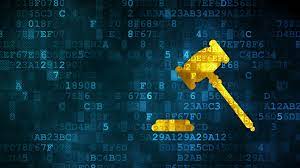A Comparative Analysis of Cyber Security Laws and Policies in Nigeria and South Africa
Main Article Content
Abstract
There is free flow of information in the cyberspace and as a result, nations are obviously wary of the integrity of its data as part of both public safety and national security concerns. There are ways that the associated risk could be mitigated and mostly has to do with a proper development and implementation of Cyber security policies and strategies. This research focuses on the cyber security policies, strategies and laws of both Nigeria and South Africa and also making a comparative analysis of the current National Cyber Security Policy and Strategy of both countries and the necessary recommendations going forward. In the case of Nigeria, analytical evidence shows that the national documents were found to have satisfied most of the requirements in terms of content, but failed to address other aspects of cyber security concerns in the country. On the other hand, South Africa as a country is lagging especially in governmental coordination, cybersecurity legislation, engagement with business and citizens, and skilled labour. The paper tends to explore these loopholes evident in the cyber security laws and policies of the aforesaid countries, and made the necessary recommendations on how to adopt best and sustainable practices in dealing with issues related to cyber security breaches including cybercrime in both countries.
Article Details

This work is licensed under a Creative Commons Attribution-ShareAlike 4.0 International License.
All writings published in this journal are personal views of the authors and do not represent the views of this journal and the author's affiliated institutions. Author(s) are retain the copyrights of the Article. However, before publishing, it is required to obtain written confirmation from Author(s) in order to ensure the originality (Author Statement of Originality). The statement is to be signed by at least one of the authors who have obtained the assent of the co-author(s) where applicable.This work licensed under a Creative Commons Attribution-ShareAlike 4.0 International (CC BY-SA 4.0)
References
Bit Sight, (2016). The rising face of cyber crime: ransomware [online]. BitSight Technologies. Available from: https://info.bitsight.com/bitsight-insights-ransomware-pr?utm_campaign=Q316%20BitSight%20Insights&utm_medium=Press%20Release&utm_source=Press [Accessed 29 Feb 2021].
Grajek, S., (2018). Top 10 IT Issues, 2018: The Remaking of Higher Education. EDUCAUSE Review [online], (2017–2018 EDUCAUSE), 36. Available from: https://er.educause.edu/-/media/files/articles/2018/1/er181100.pdf [Accessed 28 Feb 2021].
Icirnigeria, (2017). How Thieves Hacked Into Our Database - JAMB. The ICIR [online]. Available from: https://www.icirnigeria.org/how-thieves-hacked-into-our-database-jamb/ [Accessed 11 May 2021].
Ikeji, L., (2019). University of Nigeria, Nsukka (UNN) official website hacked by suspected French hacker [online].
Linda Ikeji’s Blog. Available from: https://www.lindaikejisblog.com/2019/10/university-of-nigeria-nsukka-unn-official-website-hacked-by-suspected-french-hacker.html [Accessed 11 May 2021].
Jacobs, P.C. (2018). A National Cybersecurity Management Framework for Developing Countries. Johannesburg: University of Johannesburg. Available from: http://hdl.handle.net/102000/0002 (Accessed: 22 August 2021).
Loader, B. D. and Thomas, D. (2000). Introduction. In B. D. Loader and D. Thomas (Eds.), Cyber crime: Law enforcement, surveillance and security in the information age (pp. 1 –14)
Matthews, B. and Ross, L., (2010). Research methods: a practical guide for the social sciences. 1st ed. New York, NY: Pearson Longman.
News Agency, N., (2019). “Our Website has been Hacked and Some Results Upgraded” JAMB Cries-out ....Orders for Fresh Exam May 26ths. Naija Live Tv [online]. Available from: https://www.naijalivetv.com/our-website-has-been-hacked-and-some-results-upgraded-jamb-cries-out-orders-for-fresh-exam-may-26ths/ [Accessed 11 May 2021].
Nseyen, N., 2020. 2020 UTME: JAMB shuts down portal, announces new means of checking result [online]. Daily Post Nigeria. Available from: https://dailypost.ng/2020/03/18/2020-utme-jamb-shuts-down-portal-announces-new-means-of-checking-result/ [Accessed 11 May 2021].
Odumesi, J. O. (2014). Combating the Menace of Cybercrime. International Journal of Computer Science and Mobile Computing, 3(6), 980 – 991
Office of the National Security Adviser (2014). National Cybersecurity Policy. http://www.cybersecuritynigeria.org.ng/ncsf/index.php/downloadable-docs
Okeshola, F. B. and Adeta, A. K., (2013). The Nature, Causes and Consequences of Cyber Crime in Tertiary Institutions in Zaria-Kaduna State, Nigeria. American International Journal of Contemporary Research [online], 3 (9), 17. Available from: http://www.aijcrnet.com/journals/Vol_3_No_9_September_2013/12.pdf [Accessed 26 Apr 2021].
Sawahel, W., (2017). Universities face an age of cyber crime [online]. University World News. Available from: https://www.universityworldnews.com/post.php?story=2017092208032052 [Accessed 30 Apr 2021].
Serianu, A. (2016). Africa Cyber Security Report 2016 [online]. Lavington, Kenya: Serianu Limited. Available from: https://www.serianu.com/downloads/AfricaCyberSecurityReport2016.pdf [Accessed 30 Apr 2021].
The Nation, (2019). N180m fraud rocks Covenant University. Latest Nigeria News, Nigerian Newspapers, Politics [online], 18 May 2019. Available from: https://thenationonlineng.net/n180m-fraud-rocks-covenant-university/ [Accessed 10 May 2021].
